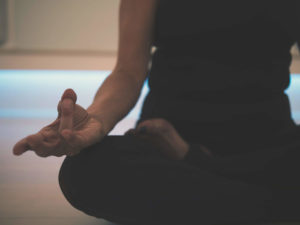Your Nervous System
Okay, let’s just say that we are going to use the most basic explanations because I am not an expert in anatomy or physiology. Your nervous system is basically your body’s command centre. It has many parts that control all manner of functions we don’t have any control over. These include things such as digesting food, pumping blood into our hearts, contracting our pupils and sweating… ok, you get the idea. Amazingly, we are autonomic machines! If you are like me, you have to search for the term autonomic, also known as automatic. In other words, your body does this. What are our autonomic functions exactly?
I’ll be quick, but you should know what I mean ….Breathing. All around, gold stars. We automatically inhale and exhale every day. It’s so automatic that we don’t even think about it. Until we do. Please try to digest your food quicker. No luck? Okay, you can pump the blood through your body. Nothing, right? You don’t have to worry, I can do it! Now that I can accelerate my breathing, buuuut! My heart rate increases when I do this. My face becomes extremely bright red when I run, and I sweat a lot. If I push myself further, it can cause dizziness and tunnel vision. This makes me feel like my heart rate is increasing and I may panic and go to the grave. Was that a panic attack or a routine I do for work? You’ll find that your body does the same things in both cases!
It is how our brains interpret real threats and other situations that makes the difference. We can hope to switch seamlessly between boosting our nervous system and decreasing it. I know from experience that I can talk fast when I am excited about something. This causes me to speed up my breathing, increase my heart rate and make my voice sound faster. Even though my nervous system may get the same outcome, the experience for everyone else is quite different. When I get a package of puppies delivered to me, my brain knows it’s not being threatened. It’s a fantasy of mine, and it has never happened. Hopefully, I’ve given you some ideas about the things that your nervous system controls as well as some insight into our bodies response.
What does all this have to do the your obsession with breathing?
Did you ever notice how I wasn’t sure if my breathing was too hard or if I was exercising? Your mind will know! When I stop running, my mind immediately focuses on slowing down my breathing. Key words: My focus means I control my breathing. Although panic attacks can feel out of control, I believe it is possible to regain control. Focus on your breathing. Slowing down your breathing can slow down your heart rate, lower blood pressure, reduce tension, and increase hormones that encourage rest and relaxation. That’s why I am obsessed with breathing. Because I want you to regain control.
Regular breathing can cause your body to not function as it should. It remains in a fight or flight stance, exhausting your body and making it less efficient. When you control your breathing, you can take back control over all the other parts of your nervous system you don’t control. Jesse Coomer is a breathwork expert. “Some of its most common benefits include improved sleep, better digestion, better focus, improved performance in athletics, improved sleep quality, reduced stress and increased heart rate variability.” There are many benefits to your breath. It is linked to almost every aspect of your health, wellness, and even your physical appearance.
Let’s practice our breathing, sweet!
This is why it’s important to practice often. If you are having panic attacks, it is not the right time to try something you haven’t tried before. It will be harder to add something new to your brain if it isn’t working the same way. We can all set a goal to practice 3 times per day. The best part? Even if you can’t use breathing techniques in distress, it’s still beneficial to practice breathing throughout the day when your mind is calm. Yay, breathing!
All mammals have the dive response. It can instantly slow down our heart rate and blood circulation, telling our bodies that we need to get to sleep before we die. This technique is not recommended for people with heart problems or who have eating disorders.
This technique requires water to be icy cold. It must be colder than the air around it, but not frozen. To activate this response, it must touch certain areas of your face, especially below your eyes and above your cheekbones. If this is not possible, you might also consider applying ice packs to your eyes.





